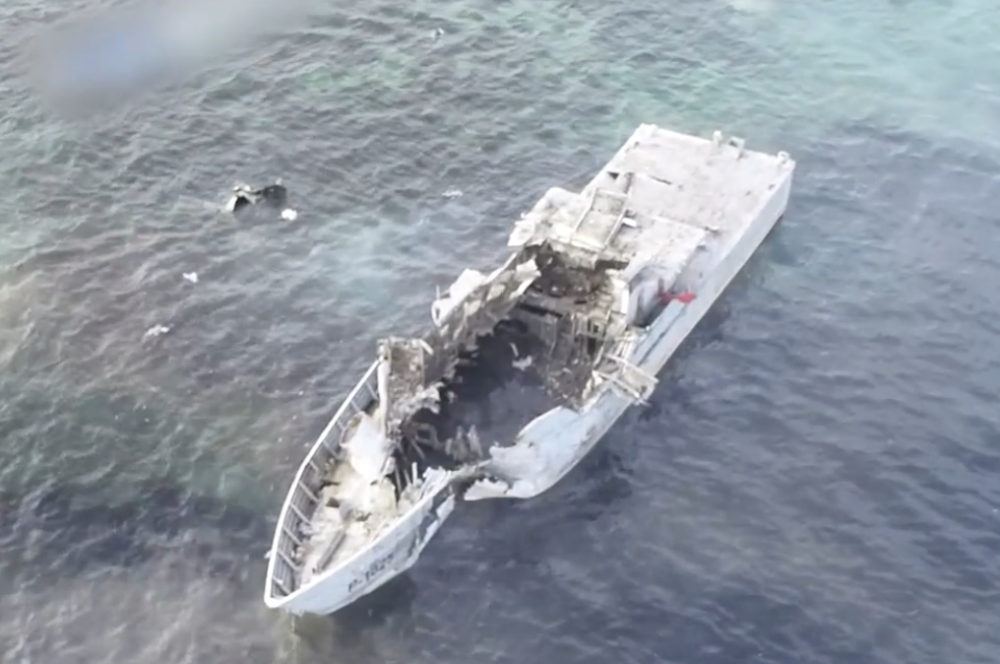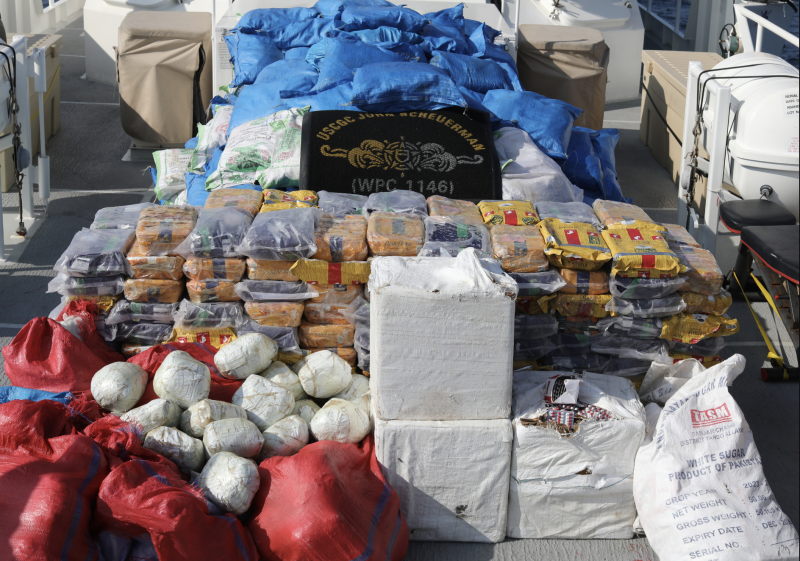Yemen : Houthis Attacked 188 Ships Since November 2023


The Houthis have targeted 188 ships “supporting Gaza” in the Red Sea, the Arabian Sea and the Indian Ocean since November 2023, when the pro-Iranian Yemeni movement began a series of attacks against commercial and military vessels, which they say are directed or linked in some way to Israel.
The leader of the movement announced yesterday, Abdul Malik al Houthis, in a speech broadcast by the group's Beirut-based Al Masirah broadcaster. "The United States and Israel have sought to intensify aggression against the Yemeni people, and the Israeli and US air strikes on Yemen this week have totaled 39," the leader said, stressing that the targeting of Hodeidah in the west of the Gulf country "by the Israeli and US enemy will not stop our operations and our jihad continues."
Since mid-November 2023, the Houthis have launched a series of attacks against commercial and military vessels transiting the Red Sea, the Arabian Sea and the Gulf of Aden, which they say are directed or linked in some way to Israel. The Houthis launched these operations “in solidarity with the people of Gaza” and have repeatedly declared that the attacks will not end until the Jewish state ceases military operations against the Strip.
The continuous attacks by the Yemeni group have prompted the US Secretary of Defense, Lloyd Austin, to launch in December 2023 the multinational Operation “Prosperity Guardian” aimed at protecting shipping in the Red Sea. In addition, US and British forces have conducted significant strikes against Houthi positions in Yemen, with the aim of reducing the militants’ ability to attack commercial shipping.
The Houthis are an armed group belonging to a current of Shiite Islam, Zaydism, widespread in Yemen, and their name derives from the founder, Hussein al Houthis, killed in 2004, who claimed direct descent from the lineage of the prophet Muhammad. Formally known as Ansar Allah, the group – ethnically Arab – was formed in the late 90s and early 2000s to fight what they saw as corruption by the then president, Ali Abdullah Saleh. The former Yemeni rais, supported by the army of Saudi Arabia - home of Sunni Islam which hosts two of the main sacred religious places, Mecca and Medina - had tried to eliminate (without success) in 2003 the Houthi rebels, who then carried out a coup d'état and engaged in a civil war starting in 2014 with the Yemeni government recognized by the UN (which in the meantime had moved to Aden, in the south).
By their own admission, the Houthis have reported that they are part of the so-called “Axis of Islamic Resistance” and take inspiration from Lebanese Hezbollah, which, according to analysts, provides them with military expertise. At the same time, Saudi Arabia has accused Iran of supplying cruise missiles and drones used by the Houthis to hit Saudi oil sites since 2019.
The Houthis' stronghold is the mountainous governorate of S'ada, on the border with Saudi Saudi. Yemeni rebels control the northern capital Sana'a and the Red Sea side of Hodeida, the gateway to and from transit through the Suez Canal. Following the outbreak of the conflict between Israel and Hamas on 7 October 2023, the Houthis expressed solidarity with the Palestinian movement, attacking ships transiting mainly in the Red Sea, where approximately 15 percent of global traffic transits. The instability created by the Houthis has led the main shipping company giants to abandon the route and prefer transit from the Cape of Good Hope, with a consequent increase in times and costs.

Aden – The Combined Maritime Forces (CMF) announced Tuesday the seizure of a new shipment of illicit narcotics valued at more than $142 milli…

Geneva – United Nations High Commissioner for Human Rights Volker Türk has renewed his urgent appeal for the immediate and unconditional…

Geneva — The International Committee of the Red Cross (ICRC) has welcomed the preliminary agreement reached between Yemen’s warring par…